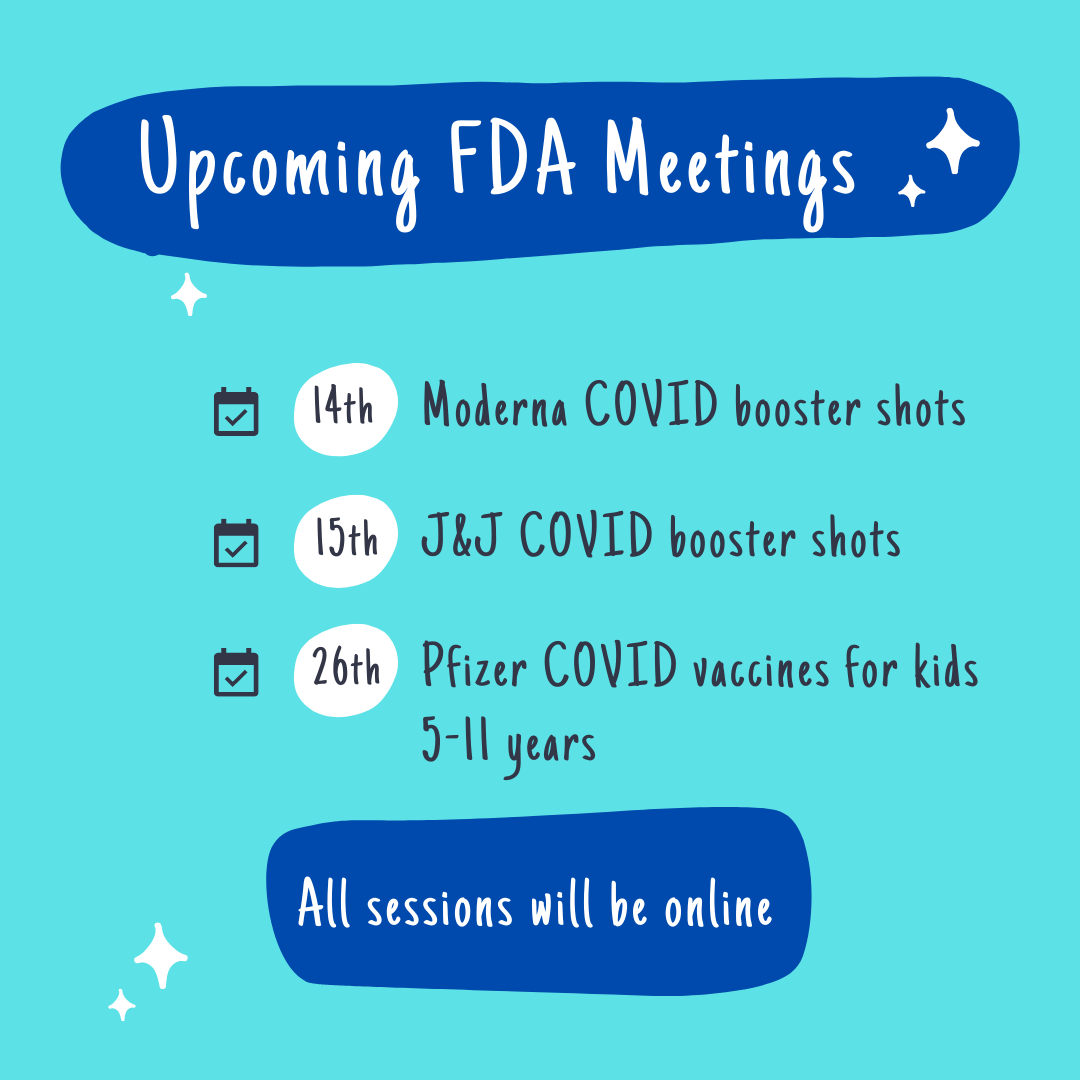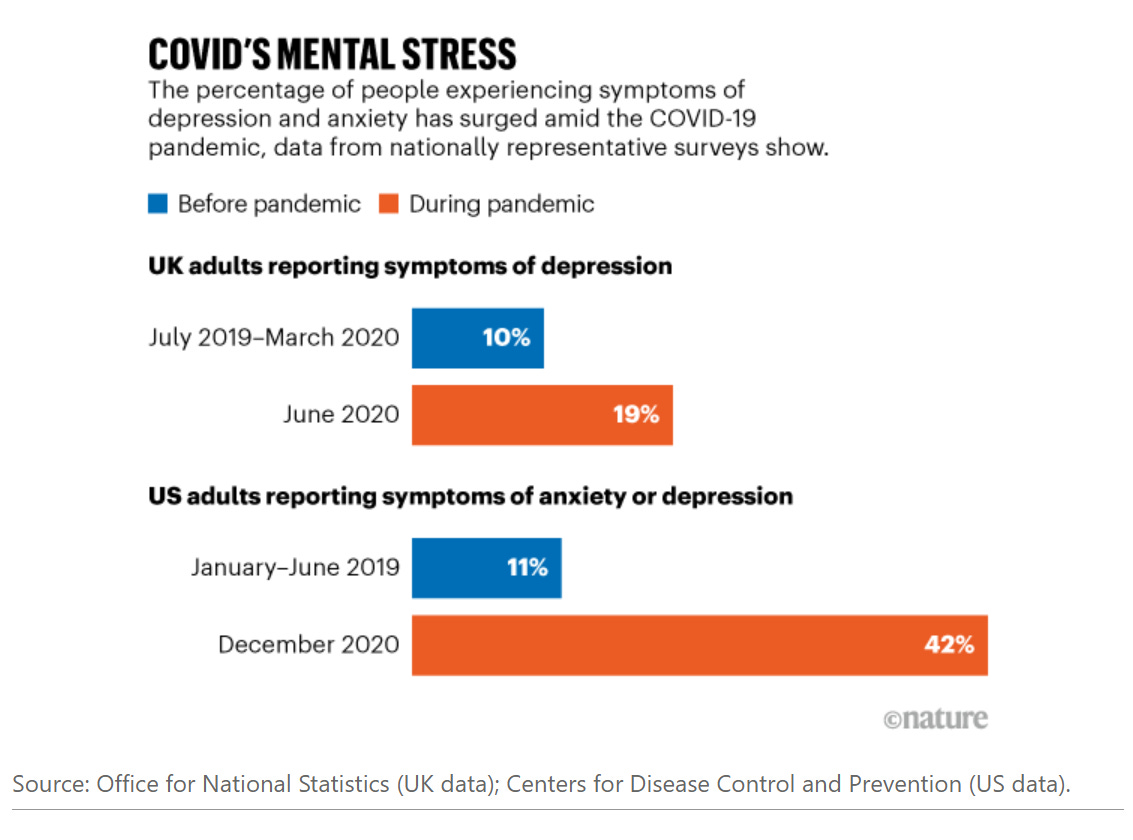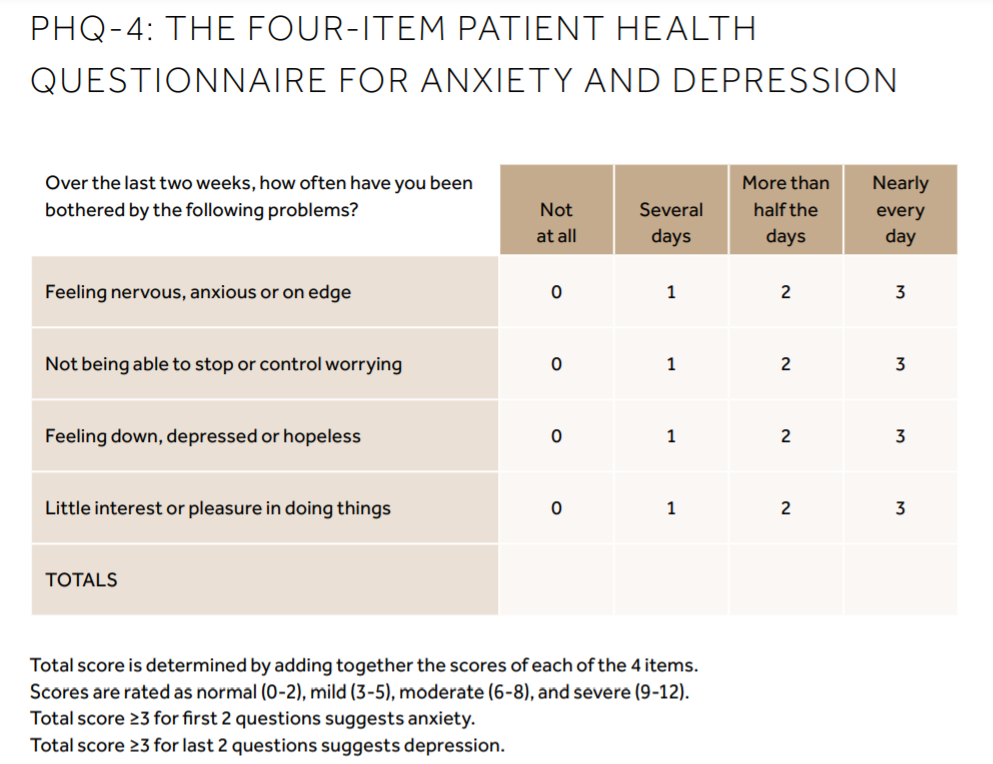The end of October is going to be full of meetings, data discussions, and votes to approve (or not) COVID boosters and vaccines for kids. Mark your calendar.
As we anticipate these meetings/votes and more news about the COVID pill from Merck, I think now is the time to talk about mental health.
Mental health among adults during the COVID-19 pandemic is the focus of this week’s Morbidity & Mortality Weekly Report (aka the MMWR). The report documents an increase in depression and anxiety among adults from August 2020-February 2021. The largest increase in depression and anxiety was found in individuals aged 18-29 years and those with less than a high school education. And the frequency of anxiety and degression was positively correlated with the average number of new cases of COVID. This means that as the number of COVID cases increases, the number of individuals reporting depression and anxiety increases.
As a community/country, our mental health has deteriorated throughout the pandemic.
What does this all mean?
The pandemic has been devasting to our mental health - from lockdowns to masking, zoom to new vocabulary. We’ve had to help our kids learn online, make decisions about travel, gatherings, and who we socialize with, adjust financially (loss of income for some or adding masks to our family budget), and face death. With 700,000+ COVID deaths in the US, most of us know someone (or know someone who knows someone) who has died from COVID. The stress of this pandemic is real.
The mental health toll of the pandemic is real.
And this devastation to our mental health is likely to have long-lasting effects.
It is time for us all to talk honestly and without judgment about mental health.
(I want to preface the rest of this post by saying that I am by no means a mental health expert - I’m an epidemiologist. And what I’m sharing below is my personal narrative; it is my experience. I am sharing this honestly and openly with the goal of destigmatizing mental health issues and starting a conversation.)
I first became aware that the pandemic might be taking a toll on my mental health during the summer of 2020. One morning I work up and found a banner at the top of my Facebook feed asking me if I wanted to complete a COVID survey online. Being an epidemiologist whose research relies heavily on surveys, I jumped at the chance to be the person to complete a survey instead of the person designing the survey. As part of the survey, which was primarily focused on COVID symptoms and exposures, I was asked to complete the PHQ-4.
When I answered these questions honestly, I had a score of 12 - which translates to a suggestion of severe anxiety and depression.
For many of you who saw me nightly on Erie News Now or weekly on our county Facebook page answering COVID questions and sharing my epidemiological perspective, it may be hard to understand or even acknowledge my mental health struggle. I’ve become a master at masking the pain, pushing through, and putting on a good show, especially when there is work to do and people are counting on me.
For months - honestly, it was more than a year - I pushed on ignoring the fog of depression and anxiety surrounding me. I was a collegiate swimmer and marathoner - I can push through a lot. And honestly, that is what I thought I was supposed to do.
But I came to realize - through a series of events - that pushing through and living in a fog was not actually living my best life. I needed to address my mental health. And if you follow me on social media, you may have seen glimpses of the changes I decided to make. Changes in which I started to prioritize my physical, mental, and emotional health. Maybe you saw this —

Or, maybe you saw this —

While the great depression/anxiety of 2020 may have lifted, I am still a work in progress. My struggle with depression and anxiety continues. I am working with my physician, talking about it with a small circle of friends & loved ones, acknowledging it to my kids, and waking up every day knowing that I struggle with depression and anxiety.
I share all of this with you because I am part of the 42 percent of US adults who reported symptoms of depression and anxiety during the pandemic. And I am still struggling. And statistically, many of you are experiencing these same things.
We need to talk about this more openly.
I am not embarrassed to say I am struggling with depression and anxiety. It is the truth; my truth. The reality is we are living through multiple pandemics at this moment in time —
COVID-19 pandemic
Pandemic of misinformation
Pandemic of depression and anxiety.
The events of the past 18 months will forever shape us as individuals and as a community. When I envision a healthy community after the COVID pandemic has ended, I am NOT thinking of a world that is just COVID-free. I am envisioning a community that is free of infectious diseases; working to prevent, screen, and treat chronic diseases; addressing the mental, emotional, and spiritual needs of all community members; protecting the environment; and providing access to care and healthy spaces (housing, green space, places to exercise) for ALL.
This is my dream of a healthy community. And I am learning that in order to be part of the team that creates this healthy community, I need to be healthy myself (or working towards it).
And this is why I am sharing my struggles, but more importantly addressing my own mental health needs.
In conclusion, as I was struggling during this past year the quote below from the TV show Newsroom became my mantra. As we each wrestle with the pandemics we are living through and begin to think about the future we want to have post-COVID, I believe this quote is a great place to start all conversations regarding health —
“The first step to solving any problem is to recognize there is one.” ~ Will McAvoy
We are fighting (at least) three public health pandemics at this moment —
COVID-19
Depression/anxiety
Misinformation







Thank you. You hit the nail in the head for me. I’m trying to do all the same things as you AND maintain a job and coaching with 2 little ones in their own activities. I’ve searched for a counselor and therapist without success. Just thank you for being transparent and a wonderful health educator! ❤️
Thank you, Becky for your honesty. I'm sure opening up publicly is a helpful way to face your depression head on. Uncertainty, fear, anger, and frustration are some of the emotions many of us are feeling now.